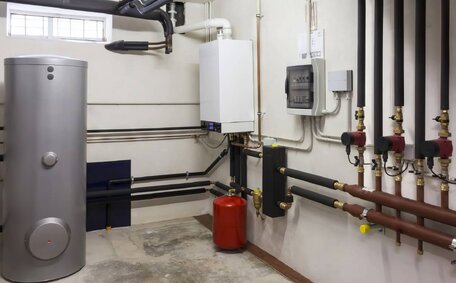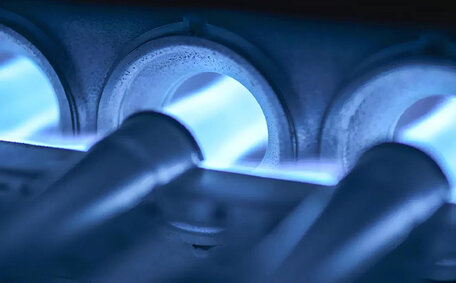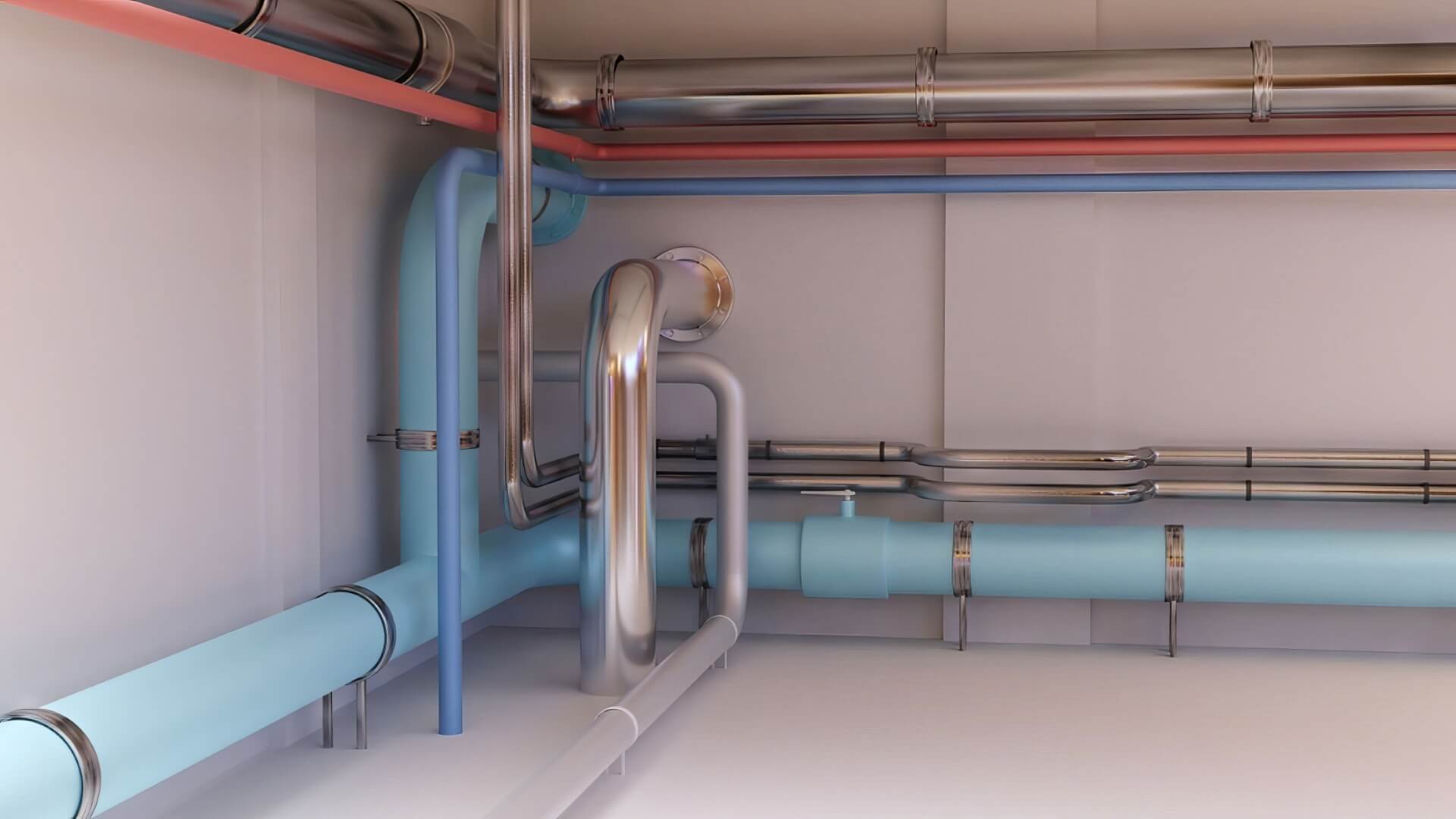Understanding the function of gas valves in heating systems
Gas valves play a crucial role in regulating the flow of gas to the burner assembly in heating systems that run on natural gas or propane. Gas valves play a crucial role in regulating the flow of gas to the burner assembly in heating systems that run on natural gas or propane.
They act as a gateway, manipulating the gas valve your furnace utilises to ensure efficient combustion within your heating system. When closed, gas valves block the fuel supply, cutting off access and preventing furnace bad gas incidents.
This on/off regulation by the valve into your system employs is essential for the performance and safety of both furnaces and air conditioner units.
Gas can be extremely hazardous and potentially cause a gas leak when the valve in your furnace shows signs of leaks or if burners receive excessive fuel for complete combustion. Faulty gas valve issues can lead to serious risks if they fail to close securely or open/close improperly, making it crucial to maintain flow of gas through your unit to prevent incidents. That’s why understanding your furnace gas valve and having it periodically inspected is crucial, and why contacting a technician immediately about any potential issues is paramount.
Common signs of a failing gas valve
There are several warning signs that may indicate issues with your furnace gas, helping you understand how know your furnace needs attention. Some of the most common indicators provide insights on how to understand:
- Lack of heat or intermittent heat: If your furnaces gas valve is unable to produce enough heat to adequately provide hot water or effectively heat your home, it could point to a failing gas valve that is not opening properly to allow full gas flow.
- Furnace repeatedly shutting off: If your furnace keeps shutting down and you have to reset your unit manually, this indicates that the gas valve may be locking out and not closing fully when it should.
- Symptoms of a bad gas valve your furnace exhibits include: Hissing, whistling or odd rumbling noises that all stem from issues with gas valves.
- Smell of gas: If you smell gas, the rotten egg odour associated with natural gas could mean there’s a dangerous gas leak caused by a damaged gas valve.
- Pilot light issues: Problems with keeping the pilot light lit can be due to a faulty gas valve not providing consistent fuel flow.
While it might be tempting to address your gas boiler repair yourself, issues like troubleshooting furnace gas problems require the expertise of a professional HVAC technician. Malfunctioning valves that can cause furnace issues and indicate bad gas conditions in heating and air conditioning units present serious safety risks, including gas leaks and fire hazards, necessitating professional assistance as soon as possible. Call professional, contact a certified HVAC technician as soon as you observe any potential signs of problems.
Lack of heat or intermittent heating
One of the most frustrating and concerning scenarios is when the gas valve begins to fail, causing insufficient or inconsistent heating into your home.
You may notice the unit struggling to reach the set temperature, therefore failing to heat your spaces adequately, which should prompt you to know furnace health signs. Or the unit might, one most likely due to valve issues, heat properly sometimes but frequently shut off, leaving your house chilly for stretches before warm air returns.
This intermittent loss of heating often points to a poorly functioning heat exchanger, where signs of a bad gas valve arise from its failure to open fully or maintain an even rate of gas flow to the burners.
The end result is the furnace cannot fire properly or continuously, disrupting comfort and requiring excessive cycling. Aside from the temperature fluctuations, you may also hear odd noises, which serve as a cue on how know furnace valve effectiveness.
Lack of heat due to suspected valve issues requires prompt attention. Never ignore changes in your furnace’s performance or unusual sounds coming from the unit. Lack of heat due to suspected valve issues requires prompt attention.
Allow a certified technician to determine if it’s time to replace your gas valve to restore safe, reliable heating this winter.
Furnace frequently turning on and off
If your furnace bad is cycling on and off repeatedly, this irregular behaviour likely signals an issue with the gas valve. Essentially, the valve may not be closing fully when the furnace should turn off.
This allows residual gas to continue flowing to the burners, which can signify something’s wrong with your gas furnace’s operation even though no extra heat is needed.
This constant cycling, indicative of a possible bad gas valve in your furnace, can happen multiple times per hour, potentially signalling something’s wrong with your system while also stressing the unit. All the excess starts and stops wear down components faster. Plus, the energy wasted from heating inconsistently and unnecessarily will show up in higher utility bills.
You may also hear unusual noises, significant signs of a bad gas valve, if a fault in the inducer motor or the malfunctioning valve prompts your system to switch on and off rapidly. Hissing or odd rumbling sounds tend to accompany the abrupt spikes in operation. Combined with the cycling, these furnace sounds reinforce the need for prompt gas valve repairs.
Strange noises coming from the furnace
Hearing odd noises emanating from your furnace should raise a red flag about potential issues with a faulty gas valve in your system. Hissing, rumbling or whistling sounds tend to signal problems with the valve opening and closing properly to regulate gas flow.
To grasp do i know if furnace gas valve dysfunctions manifest and to prevent a bad valve from sticking open, causing continuous gas flow, schedule regular inspections. This gas buildup is released when ignition occurs, causing an abnormal hissing or roaring noise.
Conversely, if the valve fails to open sufficiently due to debris buildup or mechanical problems, the restricted gas flow can also translate into whistles or rumbling. The furnace strains to pull in enough fuel, creating turbulence and vibration.
While the noises themselves don’t pose a direct risk, they alert you to the fact that the gas valve needs professional attention. Any malfunction with such an important safety component could eventually lead to dangerous issues like gas leaks, fire hazards or carbon monoxide poisoning. Schedule inspection from a certified HVAC technician so the valve can be tested, repaired or replaced as needed.
Troubleshooting a faulty gas valve
Troubleshooting your furnaces potentially faulty gas valve demands continuous vigilance, care, and expertise. If specific signs indicate your furnace or boiler’s gas valve may be faulty, do not attempt to repair it yourself due to the significant safety risks involved.
Begin by checking the pilot light of your gas furnace, to discern any trouble such as a gas valve faulty that could disrupt your gas flow. If the pilot light appears normal yet you still observe furnace problems, listen closely for any hissing sounds that could indicate gas leaks resulting from valve damage. You can also check your thermostat connections and inspect for visual damage on the valve itself.
Key safety steps include turning off the gas using the furnace or boiler’s shutoff valve followed by the main supply valve to prevent leaks. If leaks or other unsafe conditions linked to the gas valve one of your system’s critical components—are present, evacuate your building and call the gas company immediately.
Shut down all electrical power before investigating. Shut down all electrical power before investigating.
For professional troubleshooting and repairs, contact gas safe registered technicians to test your gas valve’s operation and performance. They can identify if replacement is necessary, helping you know your furnace gas systems better by pinpointing issues such as coil resistance, electrical connections, debris blockage or gas pressure inconsistencies. Properly resolving issues with the gas valve, one of the key elements of your furnace, will restore safe, reliable heating.
Checking for gas leaks
One of the most hazardous scenarios occurs when your malfunctioning gas valve leads to the risk of gas leaks. Signs of a leak include a distinct rotten egg smell or a noticeable hissing sound coming from your furnace or boiler.
If you detect gas leaks or the smell of natural gas, take immediate precautions. Trying to seal leaks yourself risks sparks that could lead to explosion and severe injury or death.
Evacuate everyone from the building, do not turn any lights or appliances on or off, do not use phones nearby, and move a safe distance away before calling the fire department.
Only return to the property after emergency responders have contained the leak and cleared the area as safe. Then contact a certified HVAC technician for professional gas valve repairs or replacement so your system no longer poses a hazard.
Inspecting the pilot light and thermocouple
The pilot light and thermocouple play important roles in a gas heating system. The flame sensor, operating as the pilot light, provides the ignition source to light the burners when heat is demanded. If either component malfunctions, it will disrupt proper gas valve operation.
The thermocouple generates a small electric current to help you know your furnace is ready to safely ignite the gas flow.
To inspect these pieces, take certain precautions like turning off power and gas supply to mitigate any cause furnace mishaps beforehand. Check that the pilot light is actually lit when the furnace is activated. If not, the thermocouple likely isn’t signalling the valve to open and release gas. You can also inspect the thermocouple for cracks or damage that might prevent normal electric signals.
However, a furnace gas valve bad is typically an internal problem, so professional testing is best.
While pilot light and thermocouple issues can potentially be DIY repairs, most homeowners prefer leaving gas valve-related maintenance to certified HVAC technicians. The intricacy of valves combined with gas leak and fire risks require advanced training and licencing for legal handling. For optimal safety and performance, rely on a professional for inspection and repairs.
Testing the gas valve coil and wires
The gas valve in your furnace contains a coil and wires that are critical for the valve’s ability to open and close on command. When electricity from the furnace control board travels through the gas valve coil, do I notice a shift in the internal mechanism to allow gas through? This is essential to verify.
Faulty wiring or a damaged coil can prevent this from happening properly.
Determining if the gas valve working correctly involves shutting off power and using a multimeter to check for continuity or resistance issues. However, this should only be attempted by licenced HVAC technicians as part of a comprehensive valve performance analysis. Their skills make sure the assessment of your furnace valve conditions is accurate and safe.
If you suspect problems with your furnace gas valve coil or wires, do not try to test or repair them yourself. The risks of gas leaks, fires, or explosions make gas valve maintenance extremely hazardous for DIY attempts. Contact a certified professional right away for thorough troubleshooting and repairs to restore safe functioning.
Potential causes of gas valve failure
There are several common reasons why gas valves can fail over time:
- Age and wear: Gas valves contain small moving parts that are subjected to repeated opening and closing cycles over many heating seasons. Eventually, these components can wear out, preventing the gas valve from being able to open properly.
- Dirt and debris: Buildup of dirt, soot or corrosion inside the gas valve can not only impede the internal mechanisms but also cause disruptions in the gas flow. Particle debris can also jam moving parts.
- Faulty electronic controls: Gas valves direct flow gas into furnace components, often relying on electronic ignition systems and the circuit board to coordinate furnace operation. If these controls malfunction due to electrical issues or physical damage, the valve could behave erratically, impacting the overall operation.
- Sensor failure: Integrated sensors monitor pilot flame strength or temperature changes to regulate gas flow. But If these sensors fail, the valve can stick open or closed, preventing it from working properly.
- Installation issues: Incorrect gas pressure or connection problems during installation can lead to a toll on valves. Poor combustion chamber design that allows excessive heat can also damage valves over time.
Regardless of the cause, gas valve failures require immediate attention from certified professionals. Improper repairs to this critical component can result in hazardous conditions, so it’s best to call certified professionals. Our professional Home Services team with HVAC technicians can help thoroughly diagnose issues and replace valves when needed.
When to call a professional
It is crucial to contact a gas safe licenced professional as soon as you suspect any issues with your gas valve. Attempting DIY troubleshooting or repairs on furnace gas valves risks dangerous gas leaks, fire hazards, carbon monoxide poisoning or explosion.
An experienced HVAC company is integral as their professional technicians understand furnace gas valve systems and possess the expertise required to thoroughly inspect your unit. If replacement is necessary, they will install a valve rated for your furnace that meets all safety codes.
They can test components like the coil and wiring, check for leaks, assess electronic controls, and determine if debris buildup or wear is disrupting proper functioning.
For professional assessment and furnace repair, call us now at the trusted boiler repair company, Bossley Park Plumbing on 1300 349 338. Our licenced technicians provide prompt response for heating system issues to keep your home warm and safe all winter long. We handle all makes and models, utilising industry-leading diagnostics to pinpoint any gas valve faults.
Trust us for the skills and experience your critical furnace components require.






